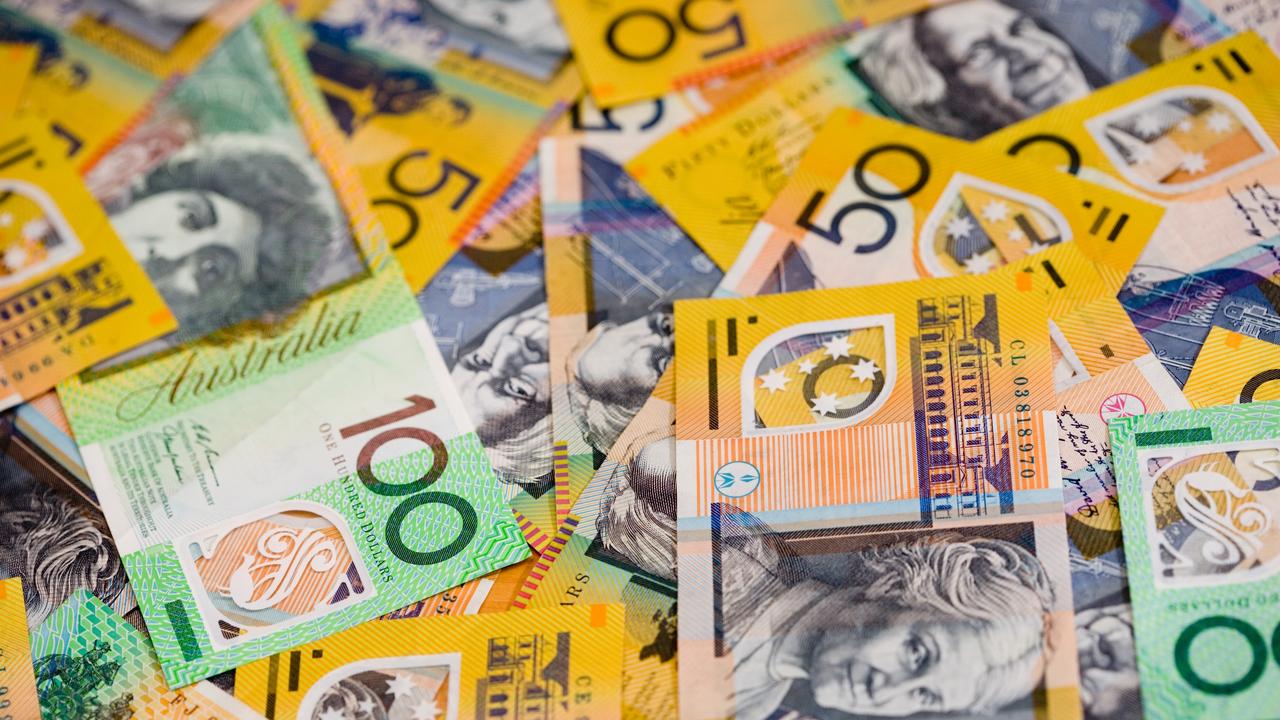Shock $8k hit coming for Aussies at tax time, as superannuation hit by stock market chaos
Australians will likely be in for a nasty surprise at the end of this financial year when they take a look at their super balances.

A nasty surprise could be waiting for Aussies at the end of this financial year when they take a look at their superannuation balances.
The money that Australians put into their funds is invested into shares and bonds, with the idea being that they grow over time to return a healthy balance for their future retirements.
However, if you’ve been paying attention to what has been happening in the economy in recent weeks, you may have noticed that all is not well on the stock market.
Aussie stocks took a massive 6.6 per cent hit in the past week – representing a massive 15.3 per cent drop from the all-time highs seen in April.
Superannuation funds are not just invested in the Australian stock market, with the majority of funds adding a mix of bonds, offshore shares, property, infrastructure and other alternative assets to the mix, meaning there is less risk in the event of an ASX crash.
However, such is the impact of the current global financial chaos – stoked by skyrocketing inflation, high interest rates and fears of a recession – that experts are warning Australians are facing a “double whammy” on their super balances.
Stream more finance news live & on demand with Flash. 25+ news channels in 1 place. New to Flash? Try 1 month free. Offer ends October 31, 2022 >

Some are warning of hits as high as 5.5 per cent when Australians open their end of financial year statements in a few weeks’ time.
For someone who has $147,425 in their superannuation fund – the national average amount an Australian has, according to the Association of Superannuation Funds of Australia (ASFA) – they could cop a whopping $8.1k hit to their retirement savings when they open their statements this tax time.
Extreme market volatility hit super funds in April, with the median growth fund falling 1.2 per cent, but Shane Oliver, AMP Capital chief economist, believes that heavy falls in the Australian stock market since then will see funds drop by up to 5 per cent.
“The average is likely to be down 4-5 per cent,” he told news.com.au. “It’s disappointing because it would be the biggest fall since the GFC in 2009 when they lost about 13 per cent.”
He said super funds this year faced a “double whammy” as the value of bonds have also taken a big hit.
Bonds are issued by governments and corporations when they raise debt, usually with the promise of a set interest or coupon rate for a given period of time.
Dr Oliver said they typically make up about 25-30 per cent of the investment in super funds, with shares making up about 60 per cent.
But like shares, he said the value of bonds has also been hammered saying they have seen their worst financial year since the 1970s.
Why you shouldn’t panic
While a drop of 5 per cent on your retirement savings may seem worrying, Dr Oliver said it’s important to put it in context.
“Share markets are quite volatile so there is always a risk they could drop,” he said. “But you have to remember that super is for your retirement meaning it is a long-term investment spanning several decades. It’s going to be at least a 20-year investment for most of us.”
So while there is likely to be a drop this year, it has been offset by years of very strong growth in super funds.
Last financial year, for example, the median super fund ballooned by 13.4 per cent and in 2019 it rose by 14.7 per cent.

Dr Oliver said that the average fund has risen by a healthy 8.5 per cent over the past 10 years and that a drop of 5 per cent this tax time would bring that down to 8.3 per cent – which he says is “still a pretty good return”.
Not only that, he said there is a bright side to the drop as those who continue to invest in their supers during the downturn will be getting more bang for their buck as stocks are cheaper.
That, he said, can help your fund grow faster in the future.
“The drop in super value is more of an issue for those very close to retirement, but you can manage the risk by switching over to a more conservative fund,” he said. “A lot of super providers do that for you when you’re nearing retirement anyway, but it’s worth checking.
“It’s important to think of your super as a long-term investment, there are going to be occasional setbacks along way.”
Glen McCrea, Deputy CEO of the Association of Superannuation Funds of Australia (ASFA), also stressed that Australians should think about the long term.
“There is no doubt that things are tough at the moment but in terms of people’s superannuation, it is worth acknowledging that is a decades-long proposition,” she told news.com.au.
“It’s important not to panic during market downturns as over the 10 years to June 30 2021, superannuation fund returns have averaged 8.5 per cent per annum.”

“One of the main benefits of belonging to an APRA-regulated super fund is they have professional managers who diversify the investment portfolio among a number of asset classes. This helps to provide a buffer in volatile markets.”
“If you are worried about your super, you should talk to your fund as they are there to help you.”
Stock market chaos to continue
After an extremely difficult week that saw the Aussie stock market plunge in response to recession fears, there looks to be no quick bounce back this week.
The ASX today saw a drop of 0.78 by 12pm on Monday and there are concerns there will be more pain on the way this week for the stock market and that sharp losses in the crypto market will have a flow on effect to wider markets in the following days.
“As has been the case all year, the key drivers of the fall in shares remain: high and still rising inflation flowing from pandemic distortions to supply and demand made worse by the war in Ukraine and Chinese lockdowns; central banks stepping up the pace of interest rate hikes; and the rising risk that this will trigger a recession,” Dr Oliver said.
“As always the most speculative ‘assets’ are getting hit the hardest including the pandemic winners of tech stocks (with Nasdaq having fallen 34 per cent) and cryptocurrencies (with bitcoin down 70 per cent from its high last year).”






